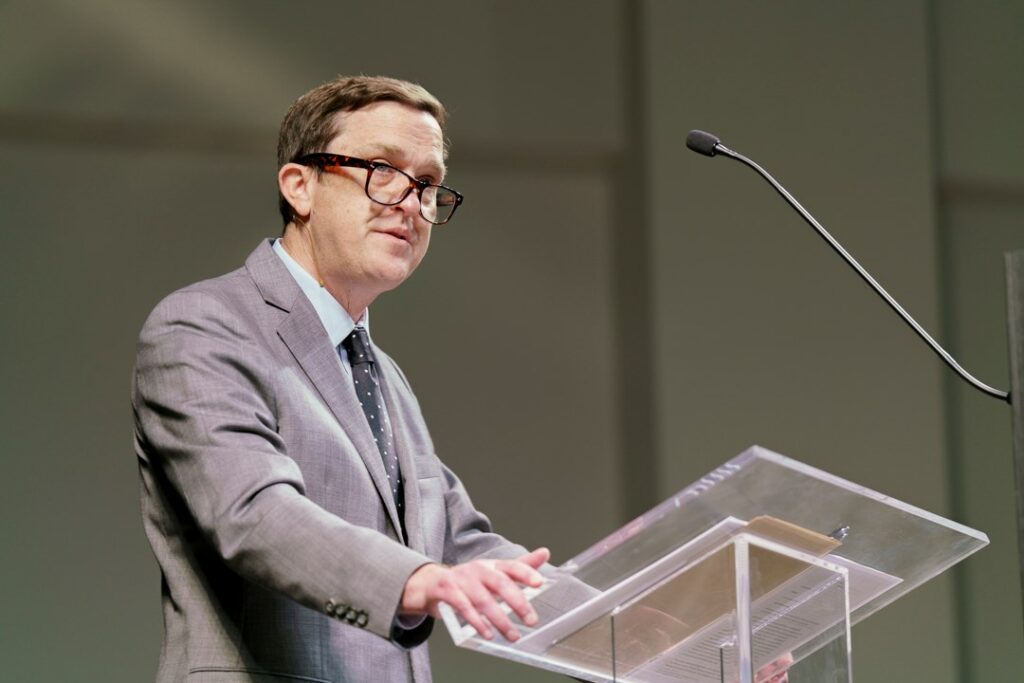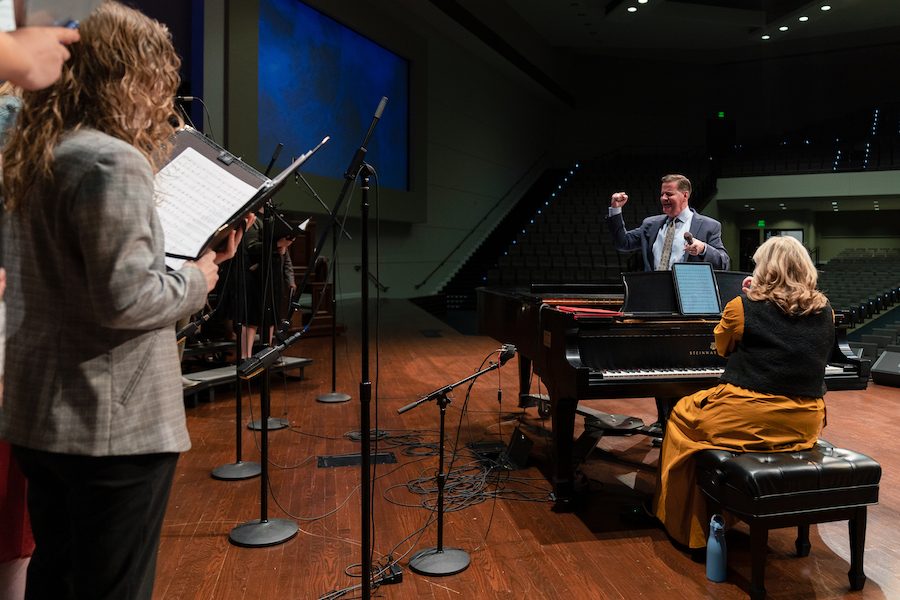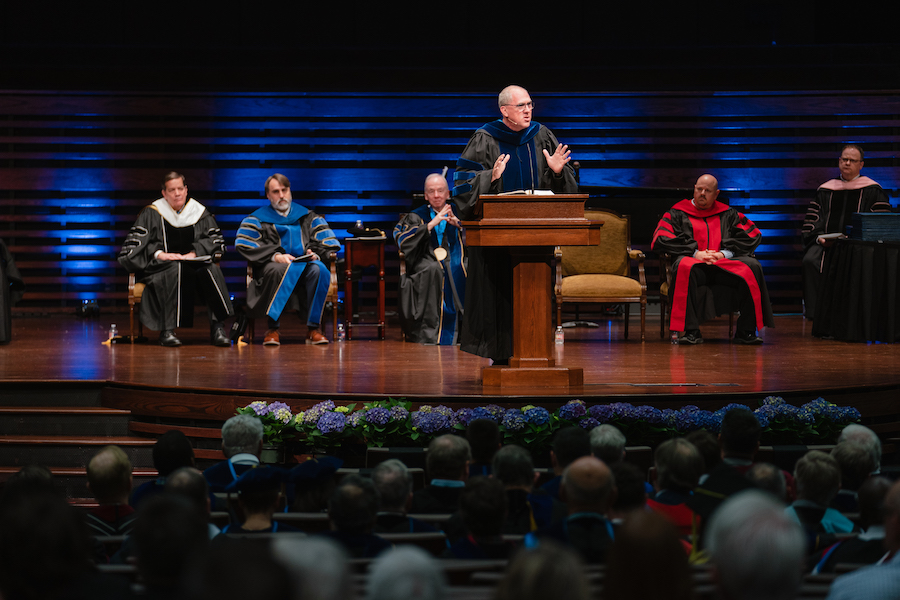‘God, the Bible, and Being’ discussed at annual Day-Higginbotham lectures

Christians’ understanding of God, as revealed in Scripture, is inextricably tied to their understanding of being, argued Scott Swain, president of the Reformed Theological Seminary in Orlando, Florida, during the annual Day-Higginbotham Lectures at Southwestern Baptist Theological Seminary, March 4-5.
“Theology is discourse concerning God because it’s evangelical discourse,” Swain said. “In proclaiming the identity and nature of the Gospel’s God, with the aid of metaphysical language and concepts, Christian theology fulfills the presupposition and end of pure religion, enabling its students to know the only true God and Jesus Christ, whom He has sent.”
Hosted by the School of Theology, the two-part series took place on Southwestern Seminary’s Fort Worth campus. The lectures could be viewed virtually as well.
The Day-Higginbotham Lectures are among several endowed lecture series at Southwestern Seminary. It was established in 1965 by Edwin M. Reardon and named as a memorial to the late Fort Worth businessman Paul Clanton Higginbotham, and to Reardon’s parents, Mr. and Mrs. Riley Day.
“The list is long of those outstanding thinkers and scholars who have been a part of this wonderful series, and of the most admired lectureships in Baptist life and in the evangelical world at large,” said David S. Dockery, interim provost and distinguished professor of theology, in his introduction to Swain’s first lecture. “This year is no exception to that, as the person who comes to be with us belongs on that list because of his outstanding work in the field of theology.”
The topic this year was “God, the Bible, and Being.” In his opening remarks, Swain explained that in his two lectures he would submit that the Bible provides reason to bring together the topics of God and “being.”
He began by arguing that early apostolic preaching provides reason for such a converging of topics.
“The church is called to proclaim the good news of God’s reign in Jesus Christ, addressing its proclamation to the world as a message of salvation and to God as appeal and praise,” Swain said. “As a reflection of the church’s labor on this assignment, Christian theology’s principle concern is God, the one whose reign the Gospel announces.
“Theology considers God in his majestic being, attributes, and persons; God in His sovereign works of creating, redeeming, and consummating all things; God as the supreme good and final end of all creatures.”
On the connection between God and “being,” and how that is revealed in Scripture itself, Swain said, “God reveals something of His eternal power and divine nature through His creative works. He makes Himself known more fully through His Word in Holy Scripture and therein supremely by means of the divine names.”
Swain described the Scripture as “divine discourse,” characterizing it as “God, through His authorized and anointed ambassadors, saying something to someone about something. Above all, God Himself—God in His being, attributes, persons, and works—is what divine discourse and Holy Scripture is about.”
Reflecting on these lectures, Malcolm B. Yarnell III, research professor of theology, said, “The theological exegesis that Scott Swain performed for this year’s Day-Higginbotham lectures dwells upon a subject increasingly critical within contemporary evangelicalism. All evangelicals, including Southern Baptists, have been blessed by Scott’s careful reading of Scripture, and it is my prayer he will continue to produce such quality, God-honoring scholarship for the benefit of us all.”



